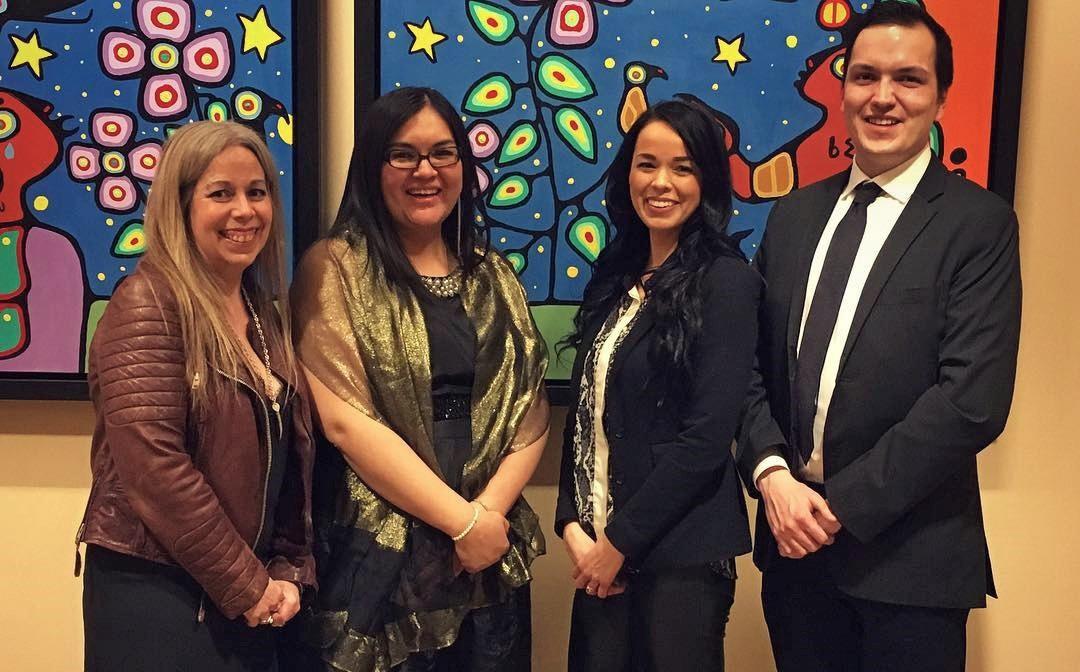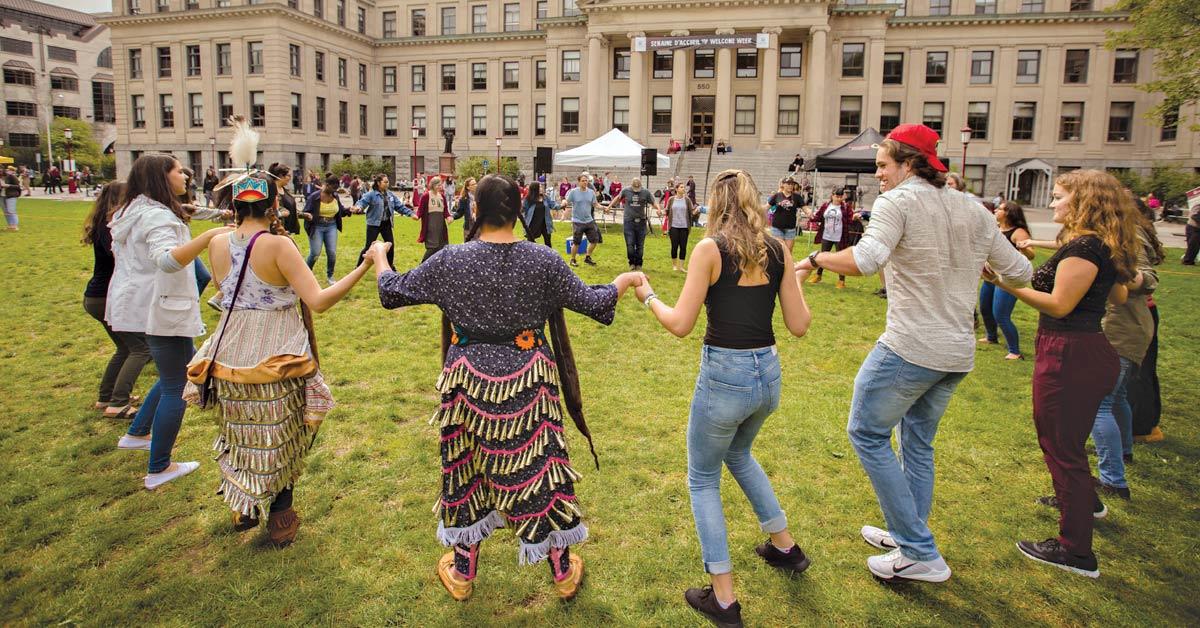
By Tareyn Johnson
Kwey, Boozhoo, Tansi, Wachiya,
The staff of Indigenous Affairs is wrapping up the first year of our new mandate. Here are eight examples of what we have accomplished and what we are currently working on to advance Indigenous issues and relations between Indigenous people and the campus.
1. A new name, thanks to the Elders Circle at Kitigan Zibi
The Indigenous Resource Centre (formerly known as the Aboriginal Resource Centre) has been gifted a new name by the Elders Circle at Kitigan Zibi. We have streamlined the name to fit with the uOttawa-used term “Indigenous.” We are now known as Mashkawazìwogamig: Indigenous Resource Centre. Mashkawazìwogamig, pronounced “Mash-kah-wah-zee-woah-gah-mig,” is an Algonquin word that means “the place of strength,” and we are affectionately being referred to as “Gamig” by students.
2. Building up the Indigenous Affairs team
Brenda Macdougall, chair for Métis research and academic delegate for Indigenous engagement, and I have completed our team with the addition of two new employees in the Indigenous Resource Centre. Melanie Neeposh is the new coordinator. She is from the Cree First Nation of Waswanipi and holds a bachelor of arts in political science pre-law from Lakehead University. Darren Sutherland is the new Indigenous community liaison officer. He is from Fort Albany First Nation and is in the final stages of completing his bachelor of arts in linguistics at the University of Ottawa.
3. Special events to honour Indigenous graduates
We hosted “Honouring Our Future Leaders,” a celebration for Indigenous graduates, at the Wabano Healing Centre on Saturday, April 14. Students were invited to a traditional dinner opened by Claudette Commanda, uOttawa elder-in-residence. The University also partnered with all Ottawa postsecondary institutions to host the 10th Annual Indigenous Post-Secondary Graduates Honouring Ceremony at the Canadian Museum of History on April 28.
4. It’s official: Indigenous attire instead of cap and gown at Convocation
We have a new policy on traditional Indigenous attire at Convocation that allows students to wear traditional ceremonial clothes in lieu of a cap and gown at any uOttawa Convocation ceremony.
5. Smudging and traditional knowledge keepers to gain recognition
Indigenous Affairs is developing a new smudging policy in collaboration with the Office of the Vice-President Academic and Provost; Facilities; Protection Services; the Office of the Vice-President, Resources; and the Office of Risk Management to develop a sustainable and respectful policy and protocols regarding Indigenous traditions on campus, including smudging. We are also writing a traditional knowledge keepers guidebook that will help the uOttawa community navigate the inclusion of traditional knowledge keepers in a respectful manner that follows Indigenous protocols. This guidebook is being written in collaboration with traditional knowledge keepers of many Indigenous communities and should be ready by September.
6. Self-ID campaign to focus services
Another way the Indigenous Affairs team has continued to support students is the new self-ID campaign, launched this year alongside the Office of the Registrar. A letter went out to all enrolled students at uOttawa, inviting them to self-identify as Indigenous with the Indigenous Resource Centre, and to inform them of the services the centre offers. Previously, uOttawa only collected student self-ID information from applications through the Ontario Universities Application Centre (OUAC), which can be unreliable if the students aren’t sure why they’re being asked or if they are Indigenous students from other nations who were confused by the question. This invitation allows Indigenous Affairs to personally welcome students and better explain the services and activities available to them at uOttawa.
7. Pow wow success
Indigenous Affairs and the Indigenous Student Association hosted the first annual Àwazìbi Pow Wow on March 10 at the Shaw Centre. The pow wow had about 1,000 guests over the course of the Saturday and received wonderful community feedback. Indigenous Affairs has already booked the next two pow wows with Facilities at uOttawa for 2019 and 2020, so stay tuned for notices about next spring’s pow wow, which will be on campus, thanks to Sports Services.
8. Spreading the word
Indigenous Affairs hosted a number of Indigenous guest speakers this past term, including Chelsea Vowel, Cynthia Wesley-Esquimaux, Sarain Fox and Jennifer Podemski, Monty Hill and Waneek Horn-Miller. We will be hosting another amazing lineup in fall and winter 2018–2019. We will be sending out information over the summer and posting information on our Facebook page and uoCal.
It’s been an eventful academic year for us and we look forward to working with all of you in the future to ensure Indigenous Affairs at uOttawa moves forward in a healthy and successful way.
Miigwech and Marsi from Indigenous Affairs.
Tareyn Johnson is the University of Ottawa’s director of Indigenous affairs.
